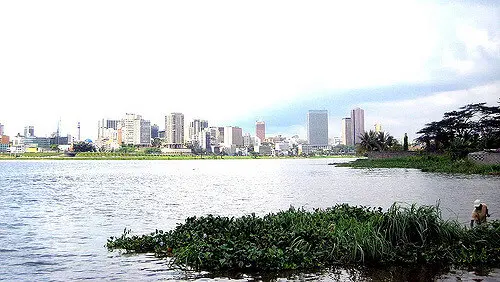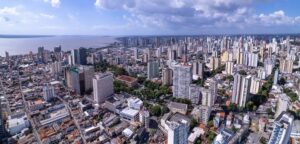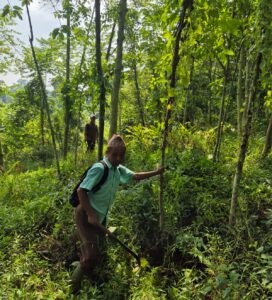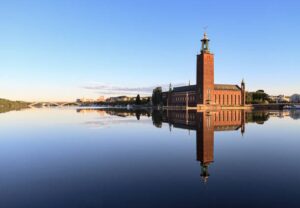Water Governance in Africa: Competing water demands
Acknowledging the rich social, political, economic and hydrological diversity that features in the African continent, the Assessment Workshop: Governance for Situations of Competing Water demands in Africa, held in Abidjan on 28-29 November, set out to identify particular water governance related challenges and ways forward. At the workshop WGF was represented by its Director Håkan Tropp who here presents his reflections and take home messages from the discussions.
Many countries on the continent are on a long-term positive trajectory of GDP growth, which contributes significantly to increasing water demands, but which also can enable increased investments in institutional development and infra-structure development. According to the latest African Economic Outlook Report (2016) Africa remains the world’s second fastest growing economy after East Asia. In 2015, sub-Saharan Africa (excluding South Africa) grew faster than the continental average, at 4.2%, with East Africa leading the way at 6.3%. Growth in Central, North and West Africa was above 3%, while Southern Africa grew by an average of 2.2%.
The workshop was organized by the Africa Natural Resources Centre (ANRC) of the African Development Bank (AfDB) which has a mandate to work with their client countries to advance on capacity development, technical assistance and knowledge development. The workshop acknowledged the social and economic transformative role of water and that improved water resources management and water and sanitation services underpin making progress on the Sustainable Development Goals (SDGs). Similarly, investments in water infra-structures and governance play a critical role to achieve African Development Bank’s “High-Five” priorities related to: food and energy security; industrialization; regional integration; and improved quality of life for the people of Africa.
A strong mega-trend for Africa is rapid urbanization. By mid-2030s, it is expected that half of the population will live in cities and towns, with the proportion of urban dwellers peaking at 56% around 2050. It will fuel water demands by manufacturing and energy sector as well as households. Water demands for food production will remain high. While Africa’s rapid urbanization for sure will lead to several challenges of providing public services it also represents great opportunity, not just for Africa’s urban dwellers but also for rural development. As two-thirds of the investments in urban infrastructure to 2050 have yet to be made, the scope is large for new, wide-ranging urban policies to turn African cities and towns into engines of social, political and economic transformation. It is clear that water forms an immensely important part in such transformation and that allocation and re-allocation of water and related social and economic benefits will be increasingly important. It is imperative that decision-making systems can allow for equitable, efficient and sustainable water use. Or that they can make trade-off decision whenever required.
The region faces several water development related challenges. The demand for water is on steep rise, especially for food, energy and household uses. There is a large remaining number of people without access to safe water and basic sanitation in both rural and urban areas. The region is witnessing increase in the number of people living in river basins under severe water stress and increase in number of people at risk from floods and droughts coupled with increasing water pollution. Water resources are by many considered “under-utilized” in many parts of the region hence an even greater push for water infrastructure development is foreseen. But, the case may be very different in arid and semi-arid parts of Africa, where available water resources are already utilized to a great extent and re-allocation of water may sharpen tensions between different water user groups as well as between countries.
The workshop discussed several options of key future directions for water governance in the African context. Some suggested key directions brought to the table were for example:
- Prioritize wrapping water governance around African government development priorities related to for example energy and food security and improving the lives of African people
- Prioritize closing the policy implementation gap and think in terms of “solutions nexus”, that is, to work to connect governance – financing – Infrastructure/technology for more efficient, equitable and sustainable investments in both “hardware” and “software”.
- Work with “best policy fit” instead of only international best practices.
- View transparency, accountability and participation (TAP) as the bricks and mortar of building governance systems that work
- Inclusive decision-making is key, hence build PPSP (public-private-social partnerships) coalitions. Increasing needs for water resources allocation and re-allocation would require platforms for negotiations and facilitation buzz-words. Tough decisions on water re-allocations need negotiation platforms among relevant stakeholders
- Address the governance enigma of parallel formal and informal governance systems: How can the informal systems move towards the formal, but without losing the social and economic benefits that the informal system produces?
- Growing water demands and use in the context of urbanization puts an added emphasis on waste water treatment and the need for viewing water in an integrated landscape perspective, beyond the city borders
- Overall most trends (economic growth, rapid urbanization and population growth, climate changes) point to an increased need for infrastructure development and sharpening of water competition. Consequently, water allocation and re-allocation within and between countries will be imperative and the governance systems in place to assure working towards country priorities of efficiency, equity and sustainability. Importantly it is not only about allocating water as such, but also governing the social and economic benefits provided by water resources and related services.








